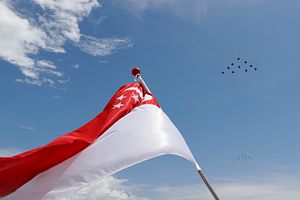Over the past few years, heightened competition between the United States and China has seen a growing interest in what this means for smaller states in the Asia-Pacific. As a country that has long been regarded as punching above its weight, and one that continues to work to preserve good relations with both Beijing and Washington, Singapore’s experience offers an interesting example in this regard.
For more on this question, The Diplomat’s senior editor Prashanth Parameswaran recently spoke to Bilahari Kausikan, former permanent secretary of Singapore’s Ministry of Foreign Affairs, about his views on how Singapore and small states can navigate rising U.S.-China competition. The conversation took place immediately following the Shangri-La Dialogue, Asia’s premier security summit, in Singapore from May 31 to June 2, 2019.
As a small state in terms of geographical size, Singapore has been regarded as having repeatedly punched above its weight historically. There have been various explanations for this, whether it be the vulnerability that the country had from its inception or its record of economic success built up over decades. What are the key factors to your mind that have served as the foundations for Singapore’s record? Are there particular examples that stand out to you?
We start from the premise that small city-states have no intrinsic relevance in the international system. Relevance is an artifact created by human endeavor, and having been created, must be sustained by human endeavor.
The foundation is economic success. A barren rock cannot be relevant. Economic success creates options. Small states will always face constraints. But rich small states will have more options than poor small states.
For example, economic success gave us the wherewithal to develop Changi naval base and open these facilities to major powers, not just the U.S., but in principle to any naval power that finds it useful and many have availed themselves of our facilities.

































